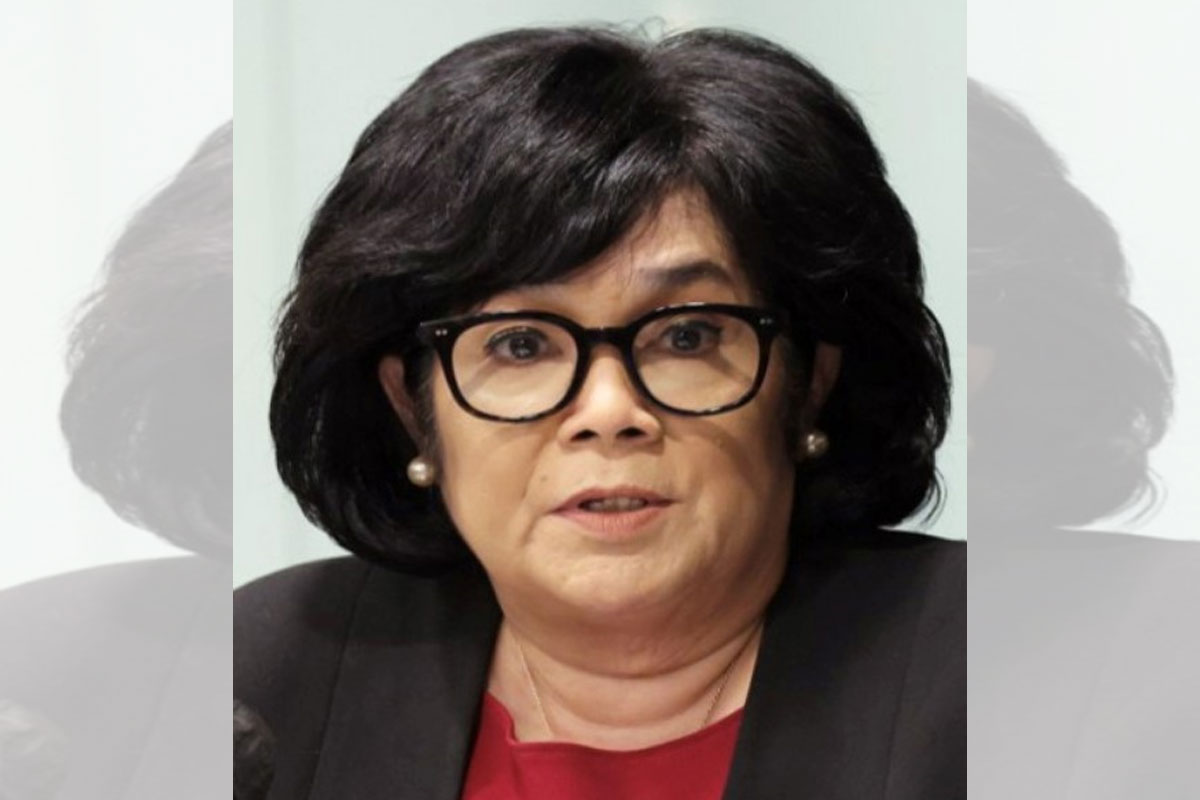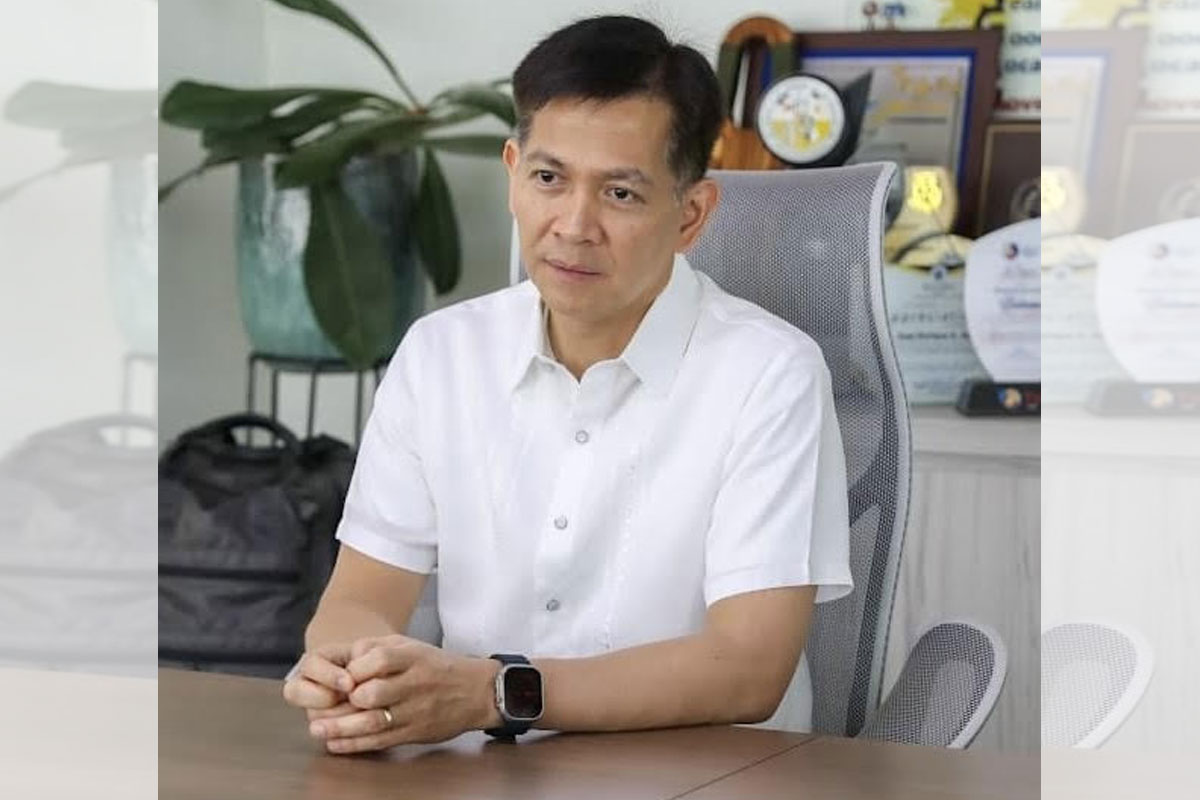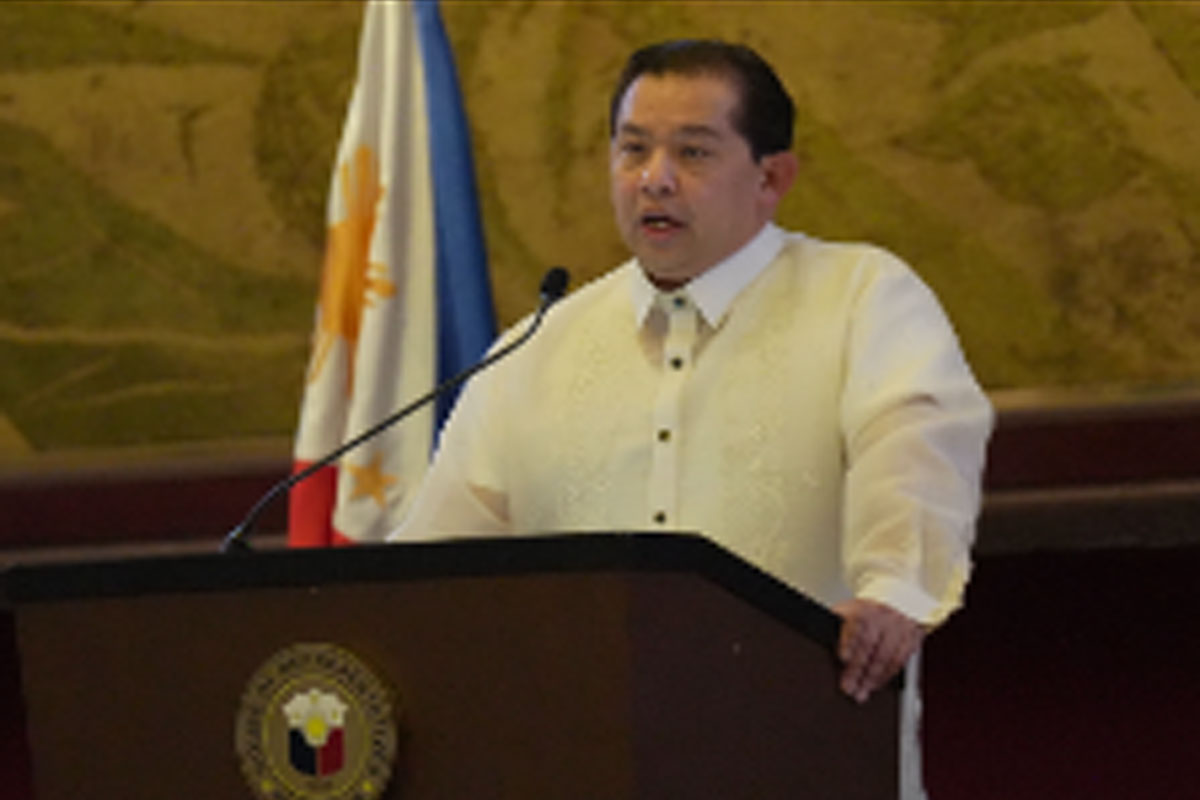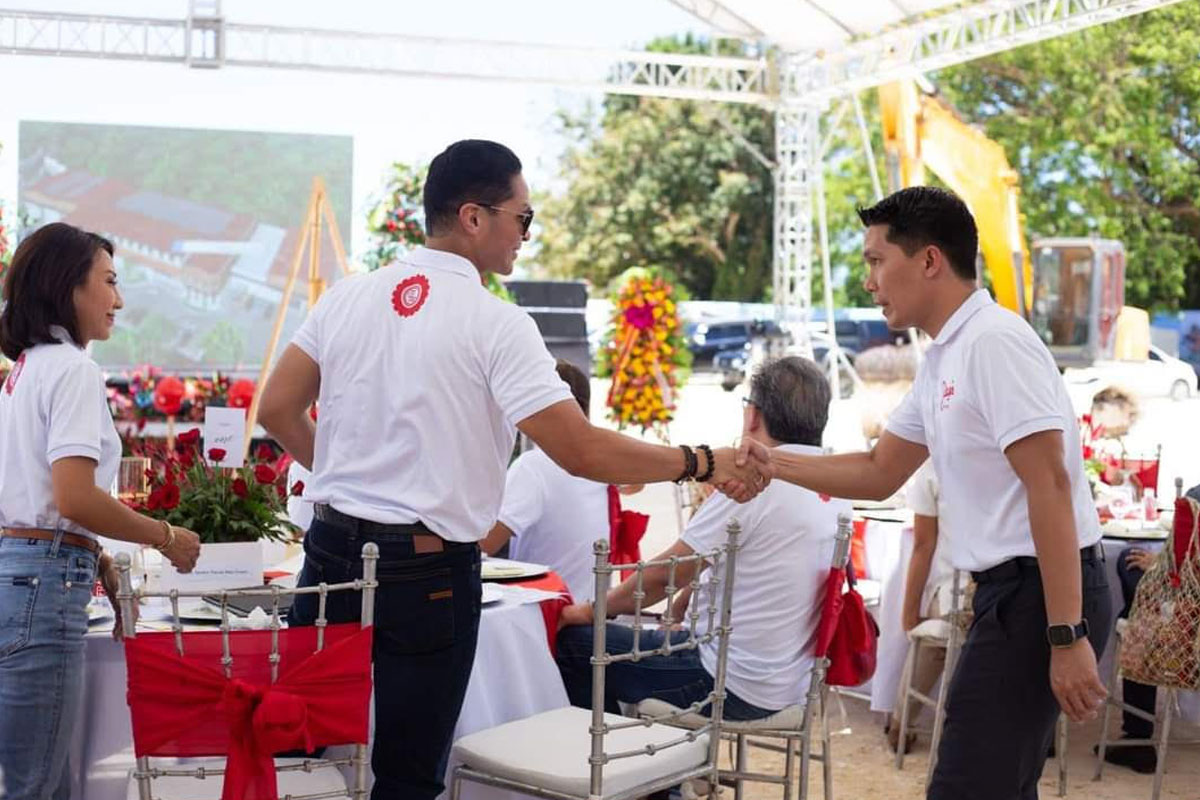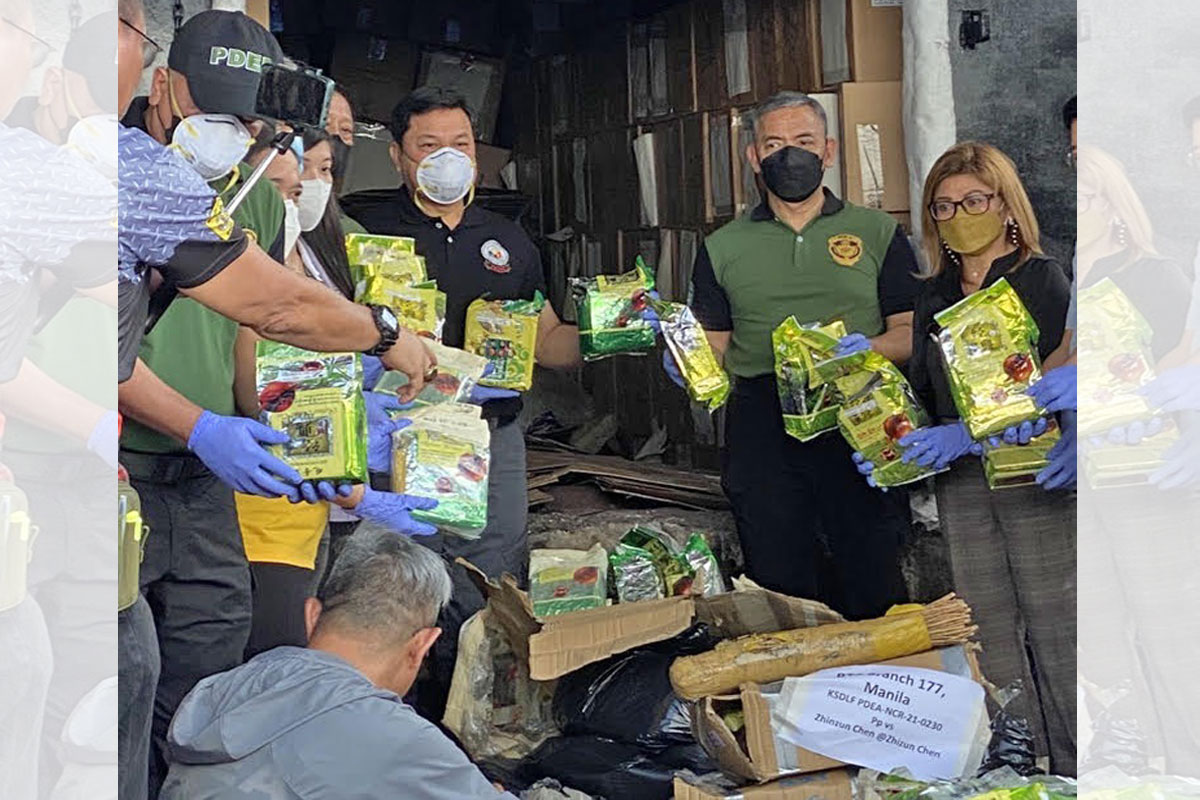 Part of the 990 kilos of shabu valued at P6.7 billion seized in Sta. Cruz, Manila last December is being shown by officials prior to their destruction last March 16.
Part of the 990 kilos of shabu valued at P6.7 billion seized in Sta. Cruz, Manila last December is being shown by officials prior to their destruction last March 16.
Baguio, Manila shabu hauls from same drug shipment?
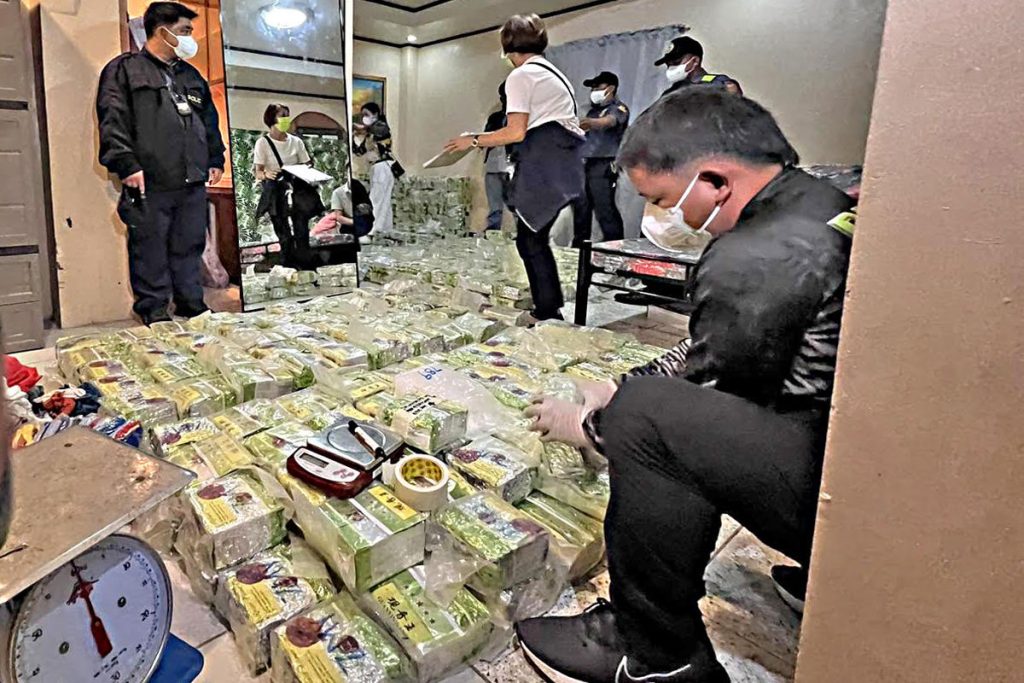
Authorities to probe drug syndicate, ‘mother ship’
DID they come from the same huge drug shipment which got away?
Authorities are now looking into the possibility that the nearly 1.6 tons of high-grade shabu seized by anti-narcotics agents in December last year and Wednesday this week were smuggled by the same drug trafficking syndicate using a “mother ship.”
The suspicion was triggered by findings that the 575 kilograms of shabu worth nearly P4 billion seized by Philippine National Police (PNP) agents in Baguio City on Wednesday and the 990 kilos of the same prohibited substance recovered in an anti-narcotics operation in Sta. Cruz, Manila in October last year, almost had the identical “Chinese green tea/aluminum foil” packaging.
Last March 16, the Philippine Drug Enforcement Agency (PDEA) chaired by Director General Moro Virgilio M. Lazo Thursday destroyed P19.9 billion worth of shabu and other seized dangerous drugs and controlled precursors and essential chemicals, the “biggest” mass destruction of recovered illegal substances in the country’s history to prevent the possibility of pilfering and recycling.
The destroyed drugs comprise evidence seized from various anti-drug operations conducted by the PDEA, the PNP, and other law enforcement agencies in the country.
They also include the 990 kilograms of shabu worth P6.7 billion confiscated by agents of the PNP Drug Enforcement Group (PNP-DEG) headed by Brigadier General Narciso D. Domingo in an anti-narcotics operation in Sta. Cruz, Manila, on October 8, 2022.
The nearly one ton of shabu seized was destroyed thru thermal decomposition or a process called “thermolysis,” which involves breaking down chemical compounds with the use of tremendous heat. At 1,000 degrees centigrade, all dangerous drugs are totally decomposed or broken down.
The huge volume of shabu was destroyed after the required laboratory examination and technical inventory in accordance with PDEA and DDB (Dangerous Drugs Board) standard procedures. Two suspects, including a policeman identified as Master Sergeant Rodolfo Mayo Jr. of the PNP-DEG, were arrested during the operation.
“But more than the amount of drugs confiscated, the important thing is we have taken off the streets millions of dosage units of toxic chemicals in this shabu concoction that could have destroyed so many young and productive Filipino lives,” PNP chief Gen. Rodolfo S. Azurin Jr. said.
That operation prompted DILG (Department of the Interior and Local Government) Secretary Benjamin “Benhur” C. Abalos Jr. to recommend to President Ferdinand “Bongbong” R. Marcos Jr. call for the courtesy resignation of all 3rd-Level police officers, more than half of which have already been screened by a 5-Man Committee led by Azurin.
The destruction of dangerous drugs, according to the PDEA, is in compliance with the guidelines set on the custody and disposition of seized dangerous drugs under Section 21, Article II of Republic Act ()RA 9165, or The Comprehensive Dangerous Drugs Act of 2002, and DDB Regulation No. 1, Series of 2002.
Last Wednesday, the 575 kilograms of shabu worth nearly P4 billion, which were seized due to a PNP “intelligence-driven” operation in Baguio City, were in Chinese green tea packaging, which looked almost the same drugs destroyed by the PDEA two weeks ago.
Highly reliable Journal Group sources said they are looking into information that a “big-time” Chinese drug trafficking syndicate smuggled more than a ton of the so-called “poor man’s cocaine” into the country last year.
“We’re eyeing the possibility that the drugs seized in Sta. Cruz, Manila, and the one recovered in Baguio City belong to the same huge drug shipment,” said one ranking intelligence official on condition of anonymity.
Abalos earlier said that a “whole-of-government” approach in fighting illegal drugs in the country was behind the seizure of 575 kilograms of shabu worth nearly P4 billion in Baguio City.
The DILG chief thanked all the participating units—from the National Capital Region Police Office (NCRPO), the Cordillera Police Regional Office, the Philippine Drug Enforcement Agency (PDEA), and the Philippine National Police Drug Enforcement Group (PNP-DEG) – which worked together to find the huge shabu storage facility where 51-year-old Chinese national with the alias “Tan” was arrested.
“I want to thank all the participating units that had worked all together to attain a whole of nation approach in the fight against illegal drugs amid the President’s order for the PNP and other law enforcement agencies to go against high-level drug syndicates,” Abalos said.
The DILG chief was joined by Baguio City Mayor Benjamin B. Magalong, PNP Deputy Chief for Operations Major General Jonnel C. Estomo, NCRPO director Major Gen. Edgar Alan O. Okubo, PDEA chair Director General Moro Virgilio M. Lazo, Cordillera Police Regional Office director Brigadier Gen. David K. Peredo, and Northern Police District director Brig. Gen. Rogelio I. Peñones Jr. in supervising the raid at the shabu warehouse located at Purok Irisan, Baguio City.
It was, so far, the largest shabu haul to be made in the Cordillera region by the police force.
“This successful operation is a testament to the effectiveness of our ‘Buhay Ingatan, Droga’y Ayawan’ (BIDA) program, which seeks to promote awareness and vigilance among the public to help combat the drug problem in our country. We commend the joint efforts of the PNP and allied agencies, and we will continue to support their efforts to rid our communities of illegal drugs,” Abalos said.
PNP Chief General Rodolfo S. Azurin Jr. also commended the operatives for their successful operation. “The seizure of this large quantity of shabu is a significant achievement in our fight against illegal drugs. We call on everyone to join us in this fight for a drug-free Philippines,” he said.
According to the official, the successful anti-drug raid stemmed from the relentless surveillance operations of the NCRPO formerly headed by Maj. Gen. Estomo and now Maj. Gen. Okubo to locate the possible storage site of a big drug shipment in the country.
In coordination with the PDEA, PNP agents managed to locate the drug storage facility. “Due to the unfavorable operating environment of these illegal drug syndicates in Metro Manila and the rigorous anti-illegal drugs operation of NCRPO, these drug syndicates had no other choice but to hide these illegal drugs to Baguio City, which is known to have very low cases of drug affectation, making it conducive for less likelihood of detection,” said Okubo.
Estomo said that prior to the raid, their intelligence officers have uncovered a plot by a major Chinese drug trafficking syndicate to distribute the drugs in Luzon area.
The PDEA was tasked to undertake a drug profiling to establish the DNA of the said drugs to aid in the conduct of follow-up operations. The recovered drugs were hidden in green tin packs with Chinese markings very similar to those recovered by the PNP and the PDEA in previous anti-narcotics operations in the country.
Arrested during the raid at Baguio City early morning Wednesday was the Chinese national described as a “chef” from Mainland China.
The Cordillera Police Regional Office conducted the raid following information from the Office of the PNP Deputy Chief for Operations and former NCRPO chief, Maj. Gen. Estomo, the Journal Group, learned.
It turned out that the NCRPO intelligence division under Estomo previously got a tip regarding the presence of a big-time foreign drug syndicate planning to distribute a huge volume of shabu in Metro Manila.
However, the syndicate apparently changed its plan and instead brought their contraband to Baguio City after feeling the heat of a massive police anti-narcotics operation in the metropolis during the time of Estomo and, lately, his successor, Okubo.



